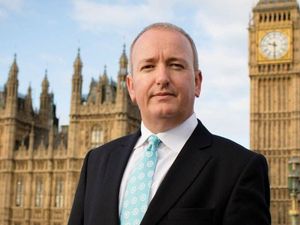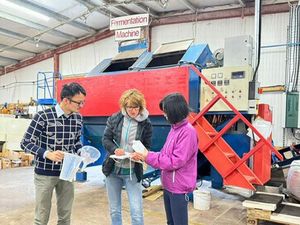Shoppers trading brands for own-label milk and dairy, says Arla Foods
Shoppers are continuing to switch from branded to supermarket own-label dairy products to cut costs as milk prices rose year-on-year, dairy giant Arla Foods has revealed.

The company, which has packing facilities in Oswestry and Malpas, near Whitchurch, said the first half of 2023 has been dominated by inflationary pressure, leading it to cut its sales forecast for the full year.
But it said it managed to grow its revenues compared with the same period last year despite seeing a decline in the number of sales.
Arla Foods UK, which is the nation’s largest dairy co-operative, owned by around 2,000 farmers, reported a 16.9 per cent surge in revenues to £1.37 billion.
It came as the average milk price increased to 48.2 cents (41.3p) per kilogram in the first half, from 46.6 cents (40p) per kilogram at the same time last year. However, a decline in commodity prices meant that average milk prices dropped from an all-time high seen during the second half of 2022.
Milk production is increasing but consumers are spending less, Arla said.
Revenues from the UK business’s branded products, which include milk brands Cravendale and Lactofree, and yoghurt brand Skyr, fell by 5.2 per cent over the first half of the year, with the volume of sales across its brands dipping. This is because consumers have been opting for discounted and own-label products, with Arla supplying the likes of milk, cream, cheese and butter to supermarkets such as Asda.
“As anticipated, the market conditions put our branded products under pressure,” said Jonathan Dixon, senior vice president of sales at Arla’s UK arm. “During the first half of 2023, we continued to see inflationary pressure resulting in consumers moving towards discount channels and private label products.
“However, we have started to see our brand performance improve towards the end of the first half year due to significant investment in our brands and our continued innovation in the dairy aisle.”
The company said it was working to minimise the inflationary impact for consumers but that it needed to support its farmers who face historically high cost pressures.
Peder Tuborgh, Arla Foods’ chief executive, said: “We anticipate that inflation and its influence on consumer patterns will continue to mark the remaining part of 2023, putting pressure on branded volumes in most markets. However, we expect an increase in the underlying category growth to contribute to branded growth slowly picking up again.”




